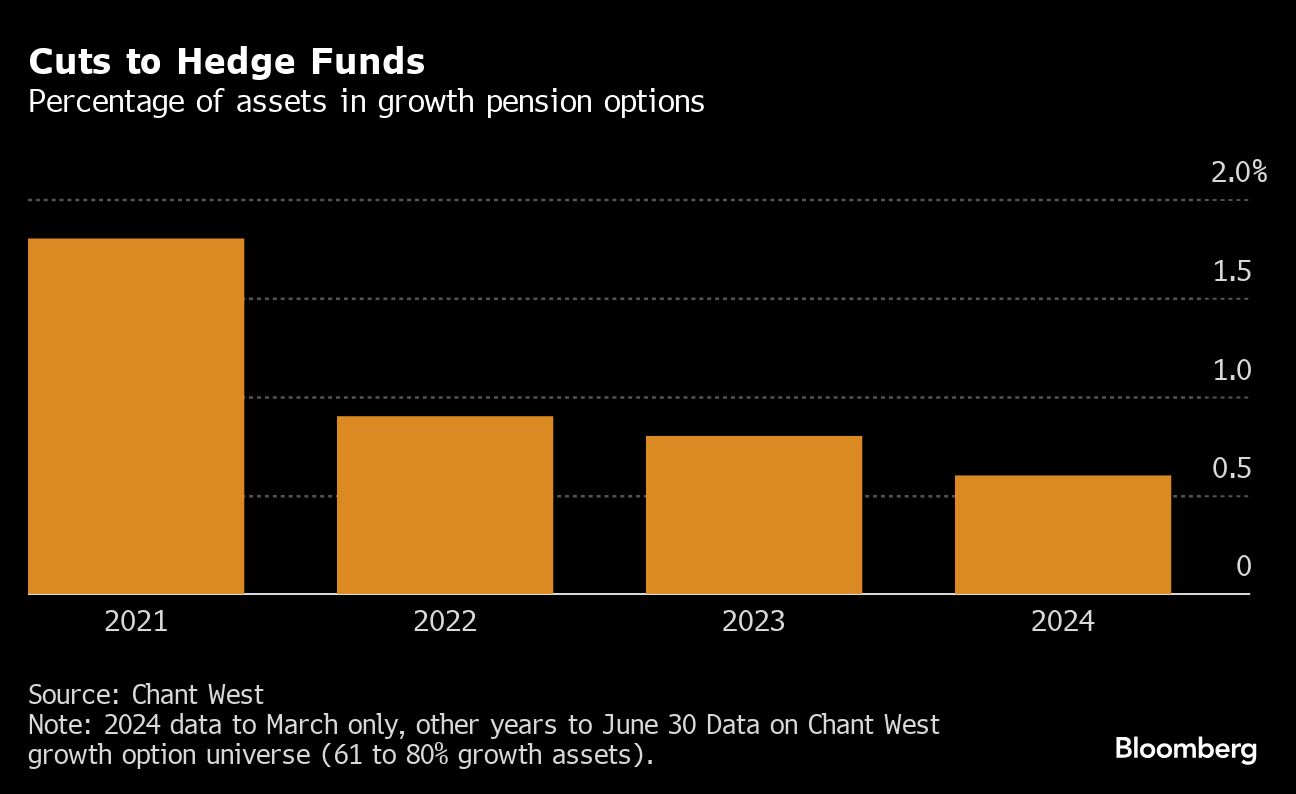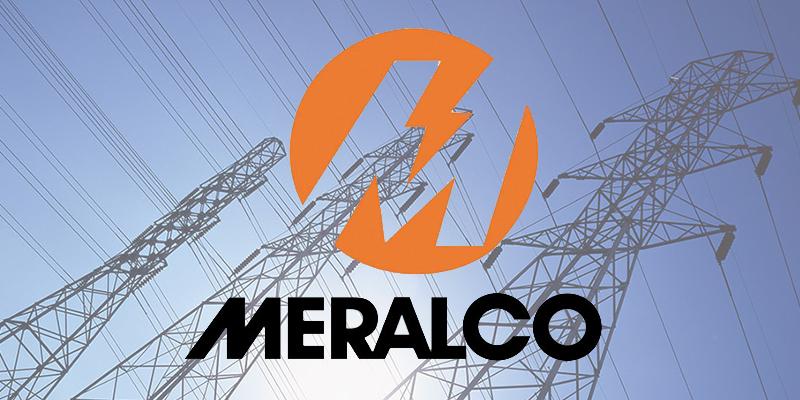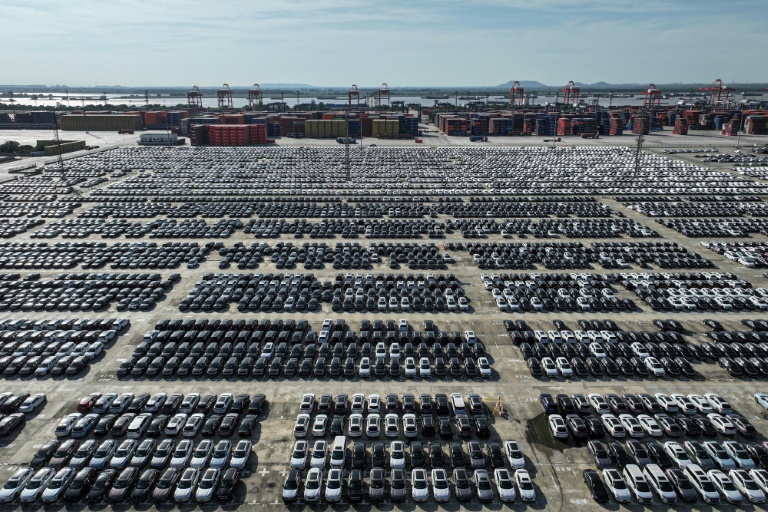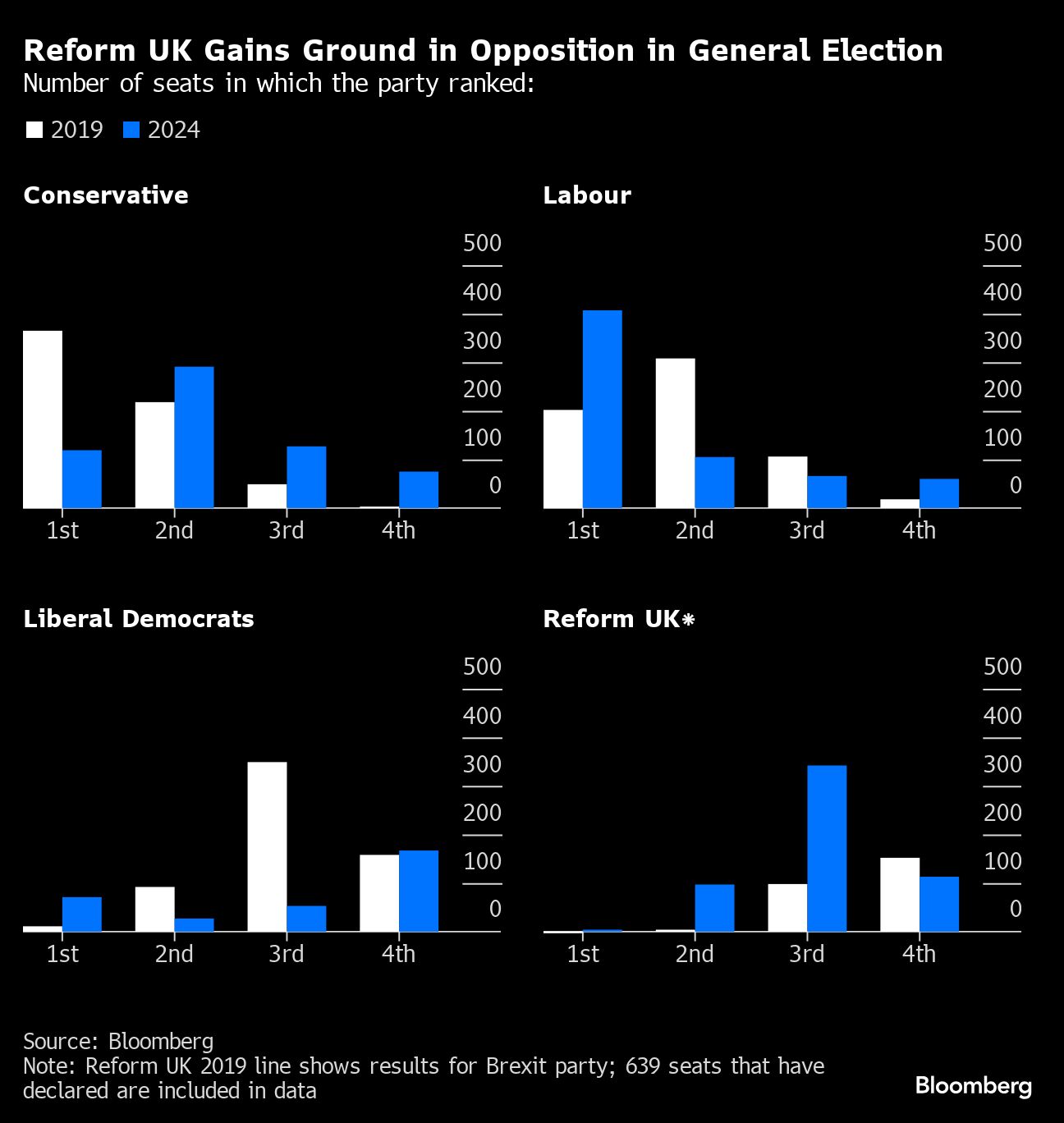
HEDGE FUNDS LOSE FAVOR IN AUSTRALIA’S $2.6 TRILLION PENSION POT
(Bloomberg) -- One of the world’s fastest growing pools of retirement capital is reducing its investments in hedge funds as regulatory scrutiny grows on fees and performance at Australian pension funds.
The average allocation to hedge funds was just 0.6% of growth investment options across Australia’s A$3.9 trillion ($2.6 trillion) pension pot in March, compared with 2.5% in mid 2020, according to the most recent data compiled by Chant West, a research firm. AMP Ltd.’s exposure has sunk to around half the prior year due to high fees, while Australian Retirement Trust, the nation’s second-biggest pension, says it doesn’t use them at all anymore.
“Hedge funds are expensive,” AMP’s head of portfolio management Stuart Eliot said in an interview in Sydney, adding that he prefers areas such as direct infrastructure, which he plans to increase.
Global investor appetite for almost every hedge fund strategy this year was down from 2023 after average management and performance fees hit the highest since 2015, a Goldman Sachs Group Inc. report found earlier this year. Meantime, popular and successful multi-strategy firms such as Millennium Management and Citadel aren’t readily accepting new money, while others require lockup periods too long for some pensions to stomach.
The Australian Prudential Regulation Authority runs an annual performance test for funds, designed to weed out under performing portfolios and clamp down on excessive fees.
That scrutiny is one reason Brighter Super doesn’t invest any of the A$32 billion it manages in hedge funds, said chief investment officer Mark Rider.
“Some of these hedge funds have promised a lot but haven’t delivered,” he said.
At Rest, an A$85 billion pension, a decision was made as far back as 2021 to reduce its hedge fund allocation to zero in part due to a lack of transparency around where the money is spent.
“In many ways the alignment of the owners to our members who care about sustainable development goals over the long term, just couldn’t come together in a way that enabled us to be confident in investing,” Rest Chief Investment Officer Andrew Lill said in an interview.
Other institutional investors are calling for a better deal. In May, a group led by the Teacher Retirement System of Texas published an open letter to the hedge fund industry, demanding changes to how the money managers get paid.
At the same time, there are parts of the world showing demand for hedge fund business is intact. Abu Dhabi officials are hoping to lure hedge fund managers to the city, offering perks to attract titans from New York, London, Hong Kong and Singapore. Neighboring Dubai is also drawing them in as funds look for new post-Brexit bases outside the City of London.
Risk, Reward Balance
Total assets in the hedge fund industry rose from around $2.9 trillion in 2015 to about $4.1 trillion by the end of 2023, according from Hedge Fund Research Inc. During the same period, global public pension fund allocation has remained around 8-9%.
Australia’s sovereign wealth fund still likes using hedge funds as they provide good returns for the level of risk taken, said Future Fund Chief Investment Officer Ben Samild. Its allocation ranges between 10-20% of his A$223 billion portfolio, he said.
“They’re a super useful addition to our portfolio and they’re super flexible, key to portfolio construction and producing the kind of returns of the kind of risks that we think is sensible,” he said in an interview.
Jun Bei Liu, who runs Tribeca Investment Partners’ Alpha Plus Fund, a long-short equity hedge fund, said she hasn’t seen a drop in business from Australian pension funds. At the same time, she’s witnessing increasing interest from clients in the Middle East.
“As a hedge fund manager, we live and die by our performance,” she said in an interview. So “if it doesn’t perform, I think it’s just not going to be sustainable.”
Read More| Australia’s Pension Funds Play Hardball on Asset Management Fees |
| Australia Pensions Near A$4 Trillion as Mega Funds Fuel Growth |
| Private Credit Lures $100 Billion Fund Seeing Sticky Inflation |
But for many, like Andrew Fisher at Australian Retirement Trust, there are better alternatives elsewhere.
“Private debt has, hands down, proven much more effective and it’s also much more scalable,” said Fisher, the firm’s head of investment strategy. Hedge funds “are quite expensive for the outcome they deliver and they just get challenging at scale,” he said.
--With assistance from Nishant Kumar.
Most Read from Bloomberg
- Biden’s Fourth of July Shrouded by Pressure to Drop 2024 Bid
- Kamala Harris Is Having a Surprise Resurgence as Biden’s Campaign Unravels
- Newsom Shocks California Politics by Scrapping Crime Measure
- House Democrats Consider Demanding Biden Withdraw From Race
- Singapore Couples Are Marrying Earlier to Buy Homes, Leading Some to Regret
©2024 Bloomberg L.P.
2024-07-03T21:25:09Z dg43tfdfdgfd











